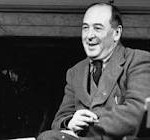 Happiness is the meaning and the purpose of life, the whole aim and end of human existence.
Happiness is the meaning and the purpose of life, the whole aim and end of human existence.
— Aristotle
Love is the joy of the good, the wonder of the wise, the amazement of the Gods.
–Plato
In many other entries, happiness has been a common theme in our conversations about the Good Life. In the hundreds of interviews that I have done, many people assume that happiness is the standard for judging whether someone is living the Good Life. When they tell me of a time when they felt they were living the Good Life, they usually revert back to a time when they were “most happy.” Their answers seem to imply that if you are happy, or happier than others, you must be living the Good Life. But is this correct? I don’t want to pick a philosophical fight with Aristotle (see quote above), but I disagree.
My disagreement with the Aristotelian notion about happiness being humankind’s ultimate aim is more of a matter of semantics. Happiness is a loose term that we use to describe a wide range of positive emotions. I believe it takes a stronger word to describe what the people in this book have when they describe their perspectives on the Good Life. What these people have is what I call “joy.”
To provide you with a better understanding of joy and how it relates to the Good Life, I ask that you be willing to travel back in time with me to meet an expert on this topic.
Across the Ocean and Across Time
The next person I want to introduce you to in our Good Life tour is the British author and professor C.S. Lewis. Even though Lewis died thirty years before I was born and lived over 5,000 miles away, I feel that I know him better than any of the others I have interviewed for this project.
I got to know Lewis through my studies at the University of Oxford. During this time, I participated in a program that was directed by a dean of Oxford who happened to be one of C.S. Lewis’s last graduate students. The highlight of my program was taking a course in which I analyzed nearly all of Lewis’s writings. During my year-long stay in England, I literally got to follow in Lewis’s footsteps by going to his favorite pub, visiting his personal home, and joining the same literary society that he and his colleagues started in the 1930’s. At the end of my studies at this academic paradise, I not only knew enough about Lewis to write a book inspired by his ideas, but also I felt that I had gotten to know him as a mentor and friend.
Lewis’s Legacy – The Books that Bear his Name
Today, Lewis is best known for being a spokesman for the Christian faith after going through a period in his younger years as an outspoken atheist. As a teenager, he encountered a brilliant teacher at his boarding school who was an atheist. The intellect of this teacher inspired Lewis to turn away from the teachings of the Church of Ireland that he was taught as a child. Later in his life, Lewis met several other Oxford professors and British intellectuals such as J.R.R Tolkien (author of the Lord of the Rings trilogy) who had many compelling arguments for their faith in God. These discussions led Lewis to believe that Christian and theist worldviews presented the most accurate picture in which to understand life.
Even though Lewis wrote many best-selling works on the Christian religion, he admits that he was no saint. He spent the majority of his life as a bachelor and enjoyed spending time with friends in Oxford pubs. At the pubs, the guys would have a beer, smoke a pipe, cuss, and get so rowdy that they were occasionally asked to leave by the owner. Though Lewis had plenty of fun at the Oxford pubs, he also used these social spaces to host a literary society called the The Inklings. By gathering many brilliant minds together on a weekly basis, Lewis was able to get feedback that helped produce many bestselling works.
Lewis was also known by those in Oxford as being a kind-hearted man. He gave nearly all the royalties from his book sales to local charities and to the widows of Oxford. He rationalized that he was a professor and should live off his teaching salary, so he found joy by giving his additional income to those in need.
Continue to Part 2 on C.S. Lewis on the Purpose of Life >>

Post Footer automatically generated by Add Post Footer Plugin for wordpress.





